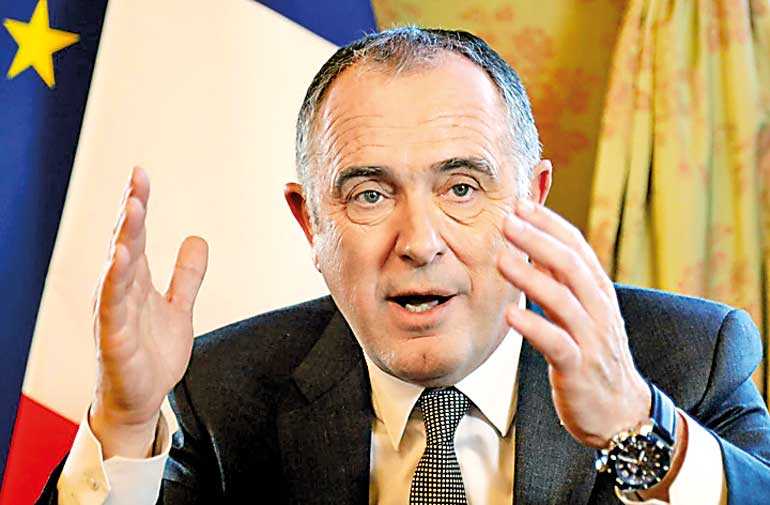Wednesday Feb 18, 2026
Wednesday Feb 18, 2026
Monday, 18 February 2019 00:02 - - {{hitsCtrl.values.hits}}

PARIS (Reuters): Only half of France’s farmland could do without glyphosate-based weed-killers by 2021, the country’s farm minister suggested, further lowering an initial ambition to get rid of the controversial chemical by then.
In November 2017, President Emmanuel Macron pledged to ban glyphosate in France within three years, rejecting a European Union decision to extend its use for five years after a heated debate over whether the weed-killer, developed by Bayer-owned Monsanto, can cause cancer.
But Macron has since admitted a blanket ban was not possible within that time frame because some sectors would not be able to survive economically and said last week he was committed to banning glyphosate for 85% of uses in France.
“Whether we are at 50, 60, 70, 80 or 90%, who cares?,” French Agriculture Minister Didier Guillaume told Reuters in an interview.
“My goal is that on Jan. 1, 2021 there will be more and more sectors that have come out of glyphosate. If there are some for which there are no solutions yet, they will continue a little until we find one.”
The announcement of the ban caused an outcry among farmers who rely on it heavily, saying that three years was too soon to find an economic and environmentally viable alternative.
Glyphosate is widely used in France, the European Union’s largest grain producer, mainly by farmers, gardeners and railway operators who want to get rid of unwanted grasses easily and at low cost.
Grain growers would likely be among farmers having the hardest time to reach the target, Guillaume said.
“Maybe for that sector it will be less but it will still be faster than if we had waited for Europe,” he said. “Fifty% is better than nothing but my goal is 100%.” Glyphosate was developed by Monsanto under the brand Roundup. It is now off-patent and marketed worldwide by dozens of other chemical groups including and Dow Agrosciences and Germany’s BASF.
Concerns about its safety emerged when a World Health Organization agency concluded in 2015 that it probably causes cancer.